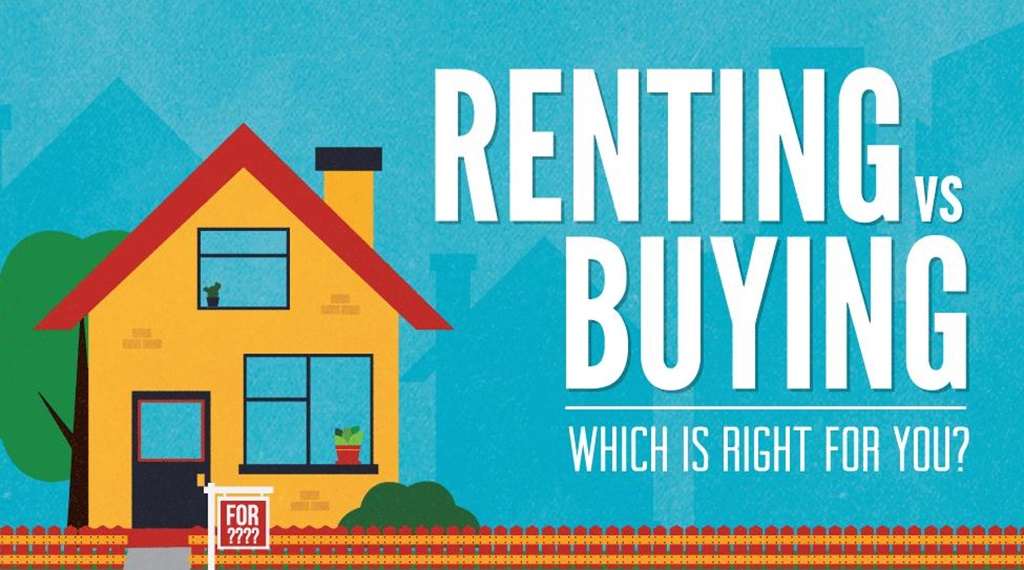The age-old debate of whether to rent or buy a home continues to perplex individuals and families across the globe. Both options come with their own unique set of advantages and disadvantages, making the decision a complex one. This comprehensive guide aims to explore the various factors that influence this decision, helping you make an informed choice that aligns with your financial goals and lifestyle preferences.
The Case for Renting
Renting a home offers a certain level of flexibility and freedom that appeals to many individuals, particularly those who are just starting out in their careers or prefer a more nomadic lifestyle.
Advantages of Renting:
- Flexibility and Mobility: Renting allows you to easily relocate without the burden of selling a property. This is particularly beneficial for individuals whose jobs require frequent relocation or those who simply enjoy exploring different neighborhoods or cities.
- Lower upfront costs: Renting typically requires a lower upfront financial commitment compared to buying. You’ll need to pay a security deposit and the first month’s rent, but you won’t have to worry about a large down payment or closing costs.
- Maintenance and Repairs: Landlords are generally responsible for handling major maintenance and repairs, saving you time and money.
- Amenities and Services: Many rental properties, particularly apartment complexes like Michigan Houses, offer a range of amenities and services such as swimming pools, fitness centers, and on-site laundry facilities.
Disadvantages of Renting:
- No equity building: Rent payments do not contribute to building equity or ownership in a property. You’re essentially paying for a place to live without accumulating any long-term financial benefits.
- Limited control and customization: Renters have limited control over their living space. You may not be allowed to paint walls, make major renovations, or even keep pets without the landlord’s permission.
- Rent increases: Rent can increase over time, making it difficult to budget and plan for the future.
- Lack of stability: Landlords can decide not to renew your lease or sell the property, forcing you to find a new place to live.
The Case for Buying

Buying a home is often seen as a significant milestone and a symbol of stability and financial security.
Advantages of Buying:
- Equity building: Mortgage payments contribute to building equity or ownership in a property. Over time, as you pay down your mortgage and the property appreciates in value, you build wealth.
- Stability and Control: Owning a home provides a sense of stability and control. You don’t have to worry about rent increases or lease terminations.
- Tax benefits: Homeowners can often deduct mortgage interest and property taxes from their income taxes, reducing their overall tax burden.
- Customization and Freedom: Homeowners have the freedom to customize and personalize their living space without seeking permission from a landlord.
Disadvantages of Buying:
- High upfront costs: Buying a home requires a significant upfront financial commitment. You’ll need to save for a down payment, closing costs, and other expenses associated with the purchase.
- Maintenance and Repairs: Homeowners are responsible for all maintenance and repairs, which can be costly and time-consuming.
- Less flexibility: Selling a home can be a complex and time-consuming process, making it less appealing for those who anticipate frequent relocation.
- Market risk: The value of your home can fluctuate depending on market conditions. There’s a risk that your home could decrease in value, particularly during economic downturns.
Related: Buying a Home to Renovate
Factors to Consider When Making the Decision
The decision of whether to rent or buy a home is a personal one that depends on various factors, including your financial situation, lifestyle preferences, and long-term goals. Here are some key factors to consider:
- Financial Stability: Buying a home requires a certain level of financial stability. You should have a steady income, a good credit score, and enough savings for a down payment and closing costs.
- Length of Stay: If you plan to stay in an area for a short period, renting may be the more practical option. Buying makes more sense if you plan to stay in a home for several years, allowing you to build equity and benefit from potential property appreciation.
- Housing Market Conditions: The current state of the housing market can significantly influence your decision. In a hot market with rising prices, buying may be a good investment. However, in a declining market, renting may be a safer option.
- Lifestyle Preferences: Consider your lifestyle preferences and priorities. If you value flexibility and mobility, renting may be a better fit. If you desire stability, control, and the freedom to customize your living space, buying may be the more appealing option.
Conclusion
The decision of whether to rent or buy a home is a complex one with no one-size-fits-all answer. It’s crucial to carefully weigh the advantages and disadvantages of each option, considering your unique financial situation, lifestyle preferences, and long-term goals.
Remember, there’s no right or wrong answer. The best option for you will depend on your individual circumstances and priorities. Take the time to do your research, consult with financial advisors if needed, and make an informed decision that aligns with your overall financial and life goals.



